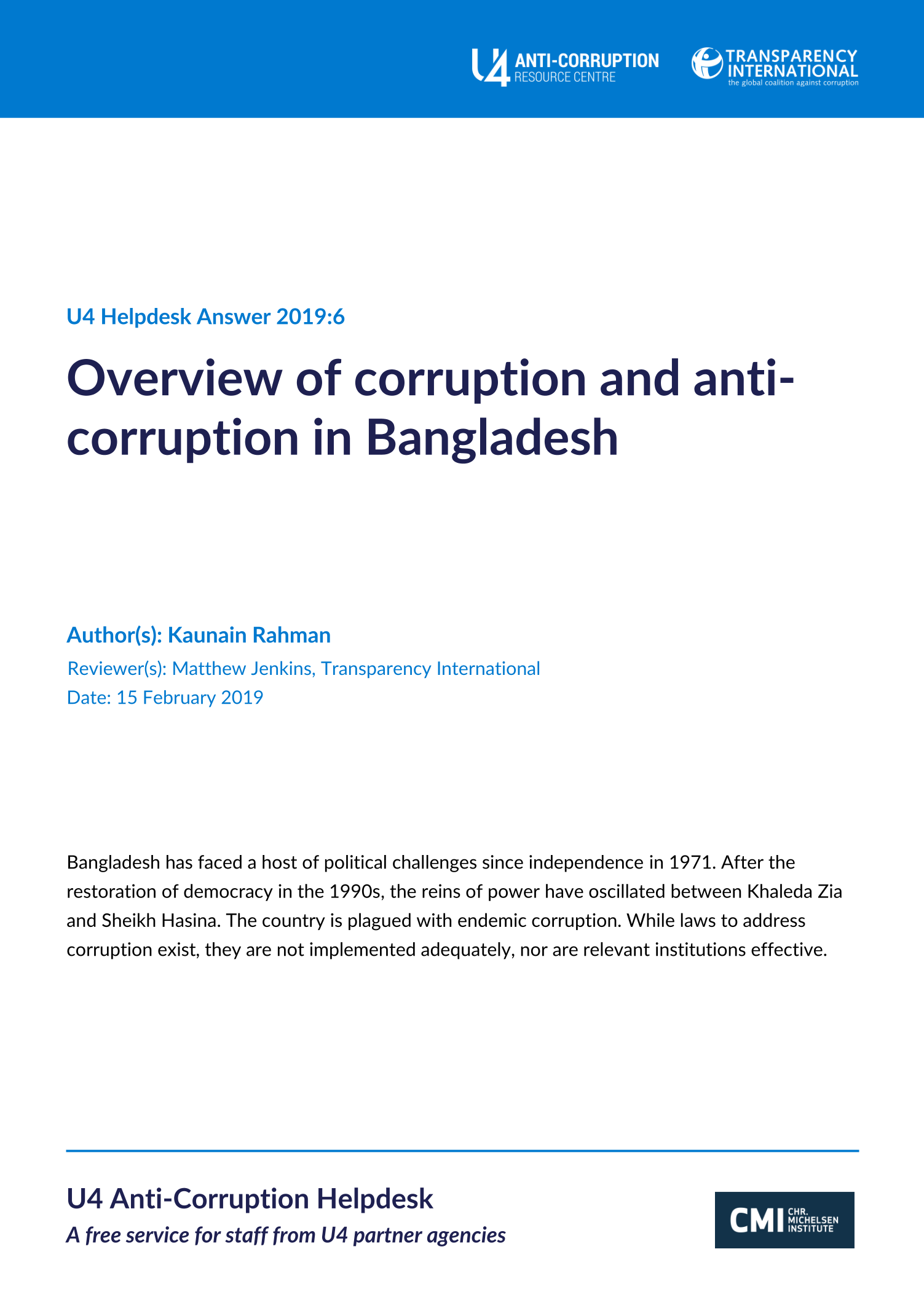Main points
- Widespread pervasive corruption leads to a culture of impunity.
- There is a paradoxical state of affairs as high levels of corruption go hand in hand with decent levels of economic growth.
- Grand and petty forms of corruption occur across various sectors: police, judiciary, healthcare and education.
- Legislation needs proper implementation to counter corruption.



